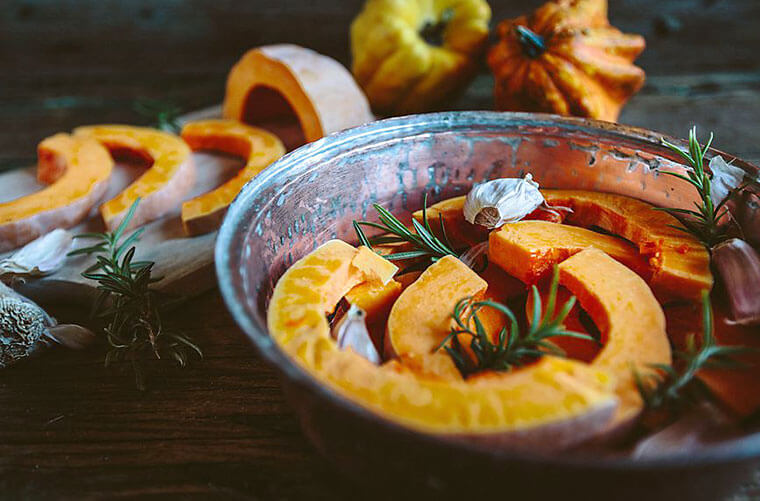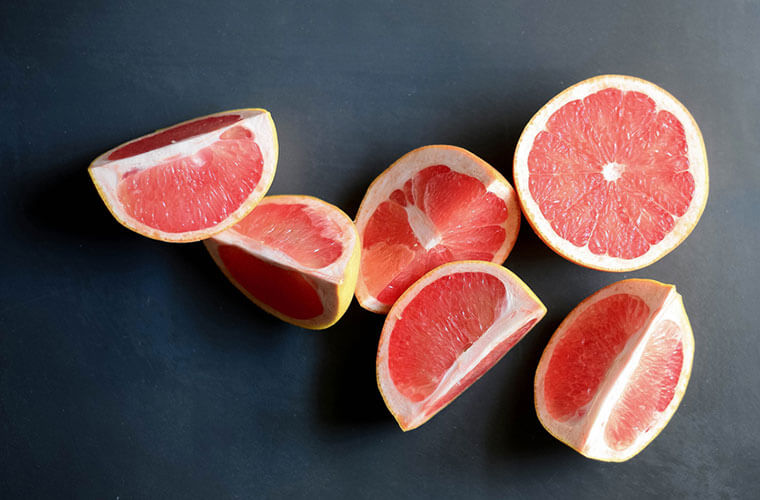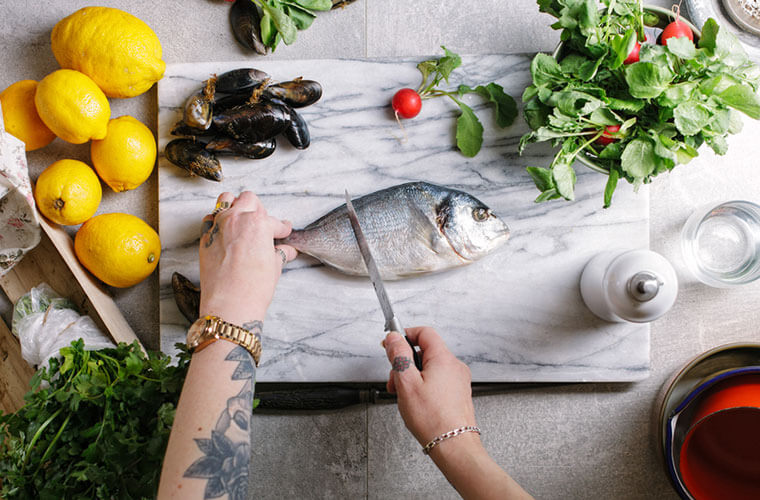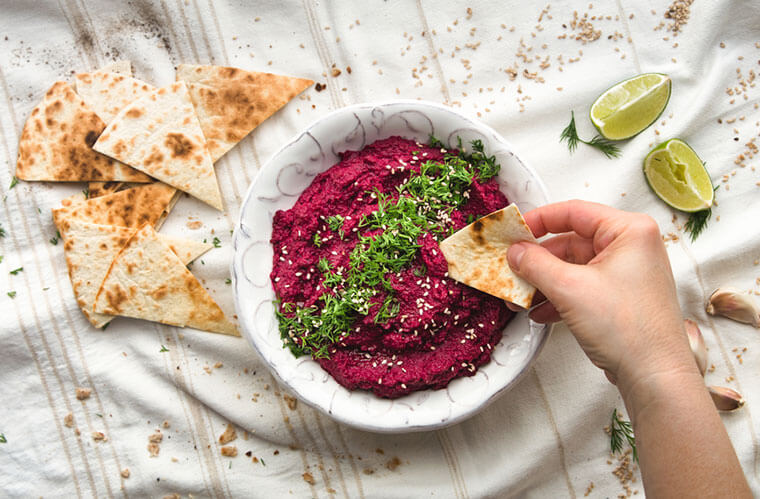4 Foods That Will Boost Your Mood and Your Energy Levels This Winter
Once the last of the "seasons greetings" have been wished, it can be easy to lose momentum and succumb to the winter blues. But a few tweaks to your grocery list could be just what the doctor ordered.
According to Haylie Pomroy, celebrity nutritionist (Jennifer Lopez and Reese Witherspoon are among her clients) and author of the New York Times best-seller The Fast Metabolism Diet, feeling down in the wintertime is the result of your body struggling to cope with receiving fewer nutrients from the sun. "With shorter days, serotonin—known as the 'mood-regulating' hormone—levels in the brain tend to decrease because its production is light-sensitive," she says. "The pineal gland [which creates melatonin, the hormone that regulates your circadian rhythm] gets less nutrients from the sun, and even vitamin D production slows as a result."
To help support the body during these seasonal changes, Pomroy turns to her kitchen. "I usually try to make a meal that has a combination of supporting adaptogens and 'excitogens,' which we're deficient in because of the shortening days," she says. Never heard of excitogens before? According to Pomory, they're the "feel-good hormones like epinephrine—AKA, adrenaline." And adaptogens, she says, "can really help to boost the immune system and help your body adapt to the changing seasons."
While you could mix these nutrients into your morning latte or pop a supplement, whole foods are Pomroy's preferred source for adaptogens and excitogens.
Keep reading for 4 mood-boosting foods to add to your diet this winter.

Pumpkin
The pumpkin spice craze may be over—until next fall—but pumpkin itself should be a regular part of your diet through the winter, according to Pomroy. "Pumpkin is high in a unique combination of selenium, zinc, and vitamin C," she says. These nutrients can help balance your hormones (chiefly serotonin and melatonin, but also your thyroid hormones), which are thrown out of whack by the shorter days and colder temps, leading to disrupted sleep and lower energy levels.
"There are foods that are high in each of [selenium, zinc, and vitamin C] independently, but pumpkin is very high in all three," Pomroy says. When her clients aren't sure how to incorporate more pumpkin into their diets, Pomroy is quick to recommend her pumpkin bread, which is gluten-free and full of healthy fats.

Grapefruit pith
Pink grapefruit, like all citrus, is loaded with vitamin C—but if you're only eating the fruit's juicy center, you're missing out on a slew of nutrients. According to Pomroy, the grapefruit's pith—the bitter-tasting white coating that clings to the inside of the peel and sometimes even the fruit—is an excitogen powerhouse.

{{post.sponsorText}}
"It's unique from other citruses because it has a high concentration of phytonutrients called bioflavinoids, which are plant-based anti-inflammatories," Pomroy says. "These bioflavinoids seem to have a positive effect on the body's receptivity to feel-good hormones." The pith is also a great source of soluble fiber and antioxidants.
Since the pith happens to have an extremely bitter taste to it, Pomroy recommends using it as a smoothie ingredient. Her tropical smoothie recipe might just make you forget that it's even winter. Now that is mood-boosting!

Fish
"During the winter our bodies are naturally in hibernation mode," Pomroy says. "We need protein to maintain blood sugar and hormone production," both important factors for mood, "but animal-based protein is very difficult to digest." According to Pomroy, however, fish requires fewer digestive enzymes to break it down, meaning it can be more easily absorbed and used to create mood-regulating hormones.
Pomroy's spicy red pepper fish is served atop a bed of lemon-garlic kale and will leave you feeling full but not bloated.

Beets
Finally, Pomroy lists beets as a must-have food to help power you through the winter. "Beets are uniquely high in vitamin B6, which is a catalyst for excitogens. When people are low in vitamin B6 they may feel tired, yet anxious and jittery at the same time. Vitamin B6 helps to strengthen the body's nervous system adaptability and support stable energy levels," says Pomroy.
So if you notice difficulty concentrating, opting for a lunch that incorporates beets—rather than another cup of coffee—may be the fix you didn't know you needed. Haylie's recipe for Dover sole with roasted veggies calls for both beets and fish for a one-two punch of brain-power.
If you really need a break from harsh winter weather, consider booking one of these tropical yoga retreats ASAP. Stuck Stateside? Stay cozy and chic at home with this decor in Pantone's 2018 color of the year.
Loading More Posts...